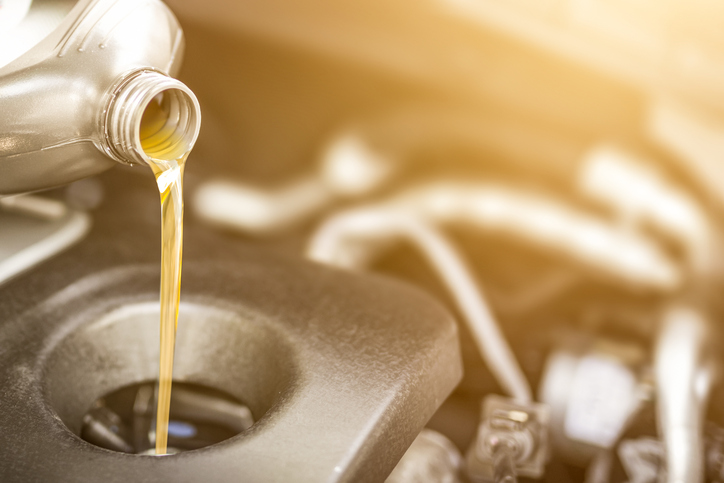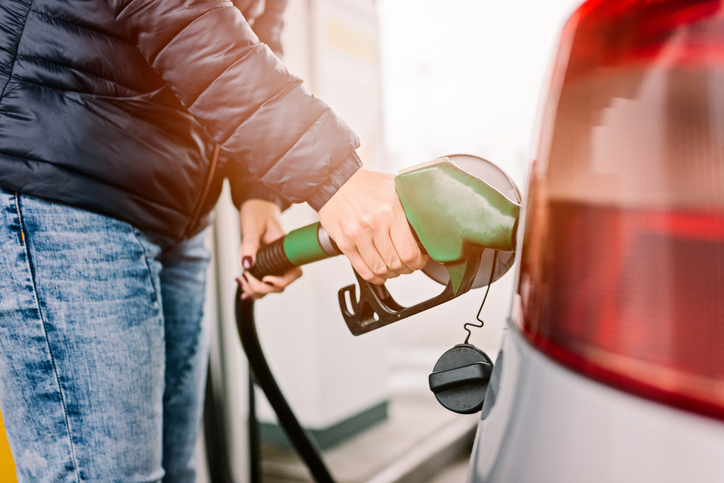Posted on 3/27/2018

This great article that All Tech Automotive wanted to share with you comes from the AAA blog. How Often Does Engine Oil Need To Be Changed? Every automobile engine needs oil, but not just any oil will do. Modern engines are designed and built to exacting standards and require oils that meet very specific industry and automaker specifications to ensure a long service life. Failure to use the right type oil, and document its use, could void your new-car warranty. Most late-model cars require synthetic-blend or full-synthetic, low-viscosity, multi-grade, resource-conserving oils that minimize friction and maximize fuel economy. However, choosing the right oil is not always easy. The proper oil for your make and model of vehicle must have the correct SAE viscosity grade, meet performance standards set by the API, ILSAC and/or ACEA, and comply with any unique specifications established by the vehicle or engine manufacturer. These requirements are detailed in your vehicle owner's manua ... read more
Posted on 3/20/2018

Pumping gas is one of those things we do without really thinking about it, but it is still a good idea to know some of the important safety tips while you visit the gas station to keep you and your car safe. This article comes from Sunoco. Be Safe At The Pump Gasoline is highly flammable. But gasoline as a liquid isn’t the danger—it’s the vapors that the liquid gives off that burn. And sometimes these vapors can travel a long distance to a source of ignition. Gasoline vapors are heavier than air. Vapors will settle to the ground and flow similar to a liquid. A gasoline/air mixture can be ignited by a hot surface, a smoldering object such as a cigarette, an open flame, or even a static spark. That’s why it’s always important to use extra caution at the pump: Always turn off your vehicle engine while refueling. Never smoke, light matches, or use lighters. Do not get back into your vehicle during refueling. If you must re-enter your vehicle, disch ... read more
Posted on 3/13/2018

It's already easy to be distracted by your surroundings when you're driving; so easy, in fact, that we don't need to be distracted by anything else. This great article that All Tech Automotive wanted to share with you comes from Geico. Tips To Help You Focus On The Road Nearly everyone is guilty of some form of distracted driving. In fact, distracted drivers are almost everywhere you look: the cell phone socialite, the in-car iPod DJ, the high-fashion cosmetician, the 3-course meal king or queen. Here are some good ideas to help you drive more safely: 1. Use your cell phone for emergency situations only. While you're driving, a cell phone should only be used for emergency purposes. Even then, it's best to pull over safely to the right shoulder to make a call. Even hands-free devices can still cause you to miss important visual and audio cues needed to avoid a crash. Social conversations on cell phones should not be carried on while driving. Remember ... read more
Posted on 3/6/2018

Foggy windows can be a nightmare when you're trying to drive your car. This article that All Tech Automotive wanted to share with you comes from the AllStateBlog. How to Deal with Foggy Windows The reason for foggy windows has to do with temperature and the air’s moisture content. On a cold day, any moisture in the air inside your car — from passengers exhaling, snow on your boots, etc. — turns to condensation when it hits air next to the windows that’s below a certain temperature, called the dew point. The condensation is what makes your car’s windows appear foggy. On a hot, humid day, the opposite happens, when the muggy air outside your car reaches the dew point against your windshield after it’s cooled by your AC system. Whether the fog is on the inside or the outside of your windows, any time you can’t see clearly in all directions, it’s potentially dangerous. So, it’s important to know how to make sure your w ... read more